Medical Inadmissibility
Anyone who applies to visit, study, work, or settle permanently in Canada may be affected by medical inadmissibility. You must adhere to all entry requirements if you submit an application to immigrate to Canada. This includes being medically ineligible.
If an officer considers you a public health risk, a risk to public security, or an unreasonable strain on wellbeing or social services, you may be considered medically ineligible to Canada. Anyone seeking to visit, study, work, or reside in Canada may be affected by this procedure, but it may be overcome if the applicant can demonstrate that they will not be a load on the health care system.
There are 3 possible reasons for medical inadmissibility:
Danger to public health
Danger to public safety
Excessive demand for health
Danger to public health
If the officer feel that your health will threaten the public health of Canada, we may reject your application. This choice is made in light of the findings of your immigration medical examination.
Danger to public safety
If the officer think your health would harm public safety, we may reject your application. This choice is made in light of the findings of your immigration medical examination.
Excessive demand on health
If we think you could be medically ineligible, we’ll let you know in writing and explain our thinking. This letter is known as a letter of procedural fairness. Before a final decision is made about your application, you will receive this letter. You will be given the chance to provide information in order to reply.
The most frequent cause of medical inadmissibility is excessive demand. Health services are defined as any health services in which the majority of funds are contributed by the Canadian government—for example, medical specialists, nurses, pharmaceuticals or hospital care. Social services can include home care, specialized residences, and personal support services. Examples of medical conditions that have previously resulted in a finding of medical inadmissibility are renal failure, Senile Dementia, Heart Disease, and Hepatitis.
Importantly, the Government of Canada established a Transitional Public Legislation in June 2018 that clarifies the definition of health and social care services, as well as the types of social services which are no longer considered when evaluating medical inadmissibility. Specifically:
Education for people with disabilities
Programs for social and vocational rehabilitation
Personal, non-professional support, such as help with everyday tasks, preparing meals, and housekeeping
The government policy also elevated the bar for health and social care services by three times Canada per capita median. The price barrier increased to $21,204 annually in January 2020, or $106,020 over five years. You can obtain a procedural statement if your therapy surpasses this sum. Before a definitive decision is reached, the officer will get this letter, and you’ll have the chance to offer material to address the officer’s objections.
Excessive demand regulations do not apply to refugees and their dependents, protected people and their dependent children, spouses, and common-law partners who are sponsored.
Letter of Procedural Fairness
A procedural fairness letter will, in most situations, identify the very worst scenario. If they receive this sort of communication, candidates should not expect that might be rejected straight away. If an individual can demonstrate that they would not be a financial drain on Canada’s publicly financed health and social assistance programs, they may not always be denied entry. Although it has been formed in Federal Court proceedings that such an applicant’s commitment to afford treatment is irrelevant when deciding whether they are medically inadmissible because there are no price measures in place, officers are trained to take into account the cost of outpatient medication, the ability to opt-out of government financed formularies, and private medical insurance options once deciding if they are medically inadmissible.
One can also demonstrate that their medical issue has been remedied, stabilized, or managed to improve and that the price or type of medicines and services you’ve been using has altered. A ‘Declaration of Ability and Intent’ will become one of the most important papers to validate your submission. If you are accepted for permanent residency in Canada, this is a thorough and feasible plan to support your medical condition.
Receiving a letter of medical inadmissibility may be disheartening, but with the knowledge and right effort, it can take a turn for the better.
CLIENTS REVIEWS
What Our Happy Customer Says
About Land2Air Immigration Services











